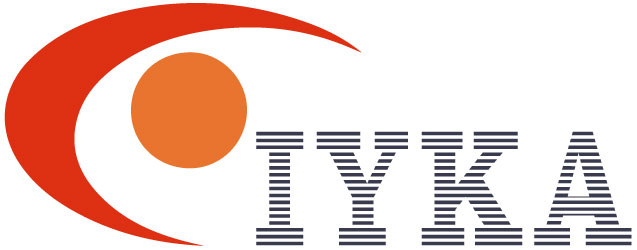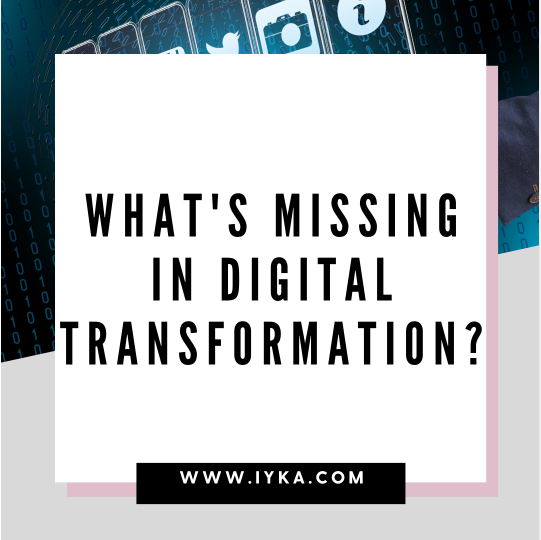Corporations desire and expect to transform their businesses where their customers have flowless interactions. Taking advantage of digital maturity to transform enterprises is the expectation of Digital Transformation (DT).
But are we on the right path to understand the “Transformation” we are racing to achieve? I challenge you that you have not even understood the meaning of success as it pertains to DT. As a result, the goals are misunderstood as well.
I get a feeling of deja vu when I look at all the discussions about digital transformation. In the 90s, businesses expected that ERP is a total technology bundle in a box that businesses need, to take care of all their technological needs.
Many statistics show that even today, about 75% of ERP projects fail. DT is in the same line of misunderstood expectations. According to McKinsey, 70% of digital transformations fail.
Don’t we all expect that our organization would be a part of the 30% that are successful? Isn’t that a practical approach?
Corporations want to make sure that their customers do not feel like they are talking to many departments to get the product or services. Over 80% of the companies hold their IT department responsible for delivering successful digital transformations. Corporations are ultra-focused on making short-term changes to grow.
Some corporations feel they have a broader vision, and they want to automate back-office processes. Some go even further and get their executives to get leadership training. But still, a whopping 70% of efforts towards Digital Transformation fail !
Let’s look at some aspects here that contribute to these failures.
The need for connectivity to provide flawless services requires integration. Thousands of SaaS products in the market can handle almost any part of the front-end or back-end of any business. There are 900 applications in an average enterprise. This sounds simple to get every process automated. But at the same time, API proliferation is known to increase the risk of attacks.
Many corporations are leaning towards microservices to tackle massive security issues. We keep trying to fix the technical issue, and we are still talking about a 30% success rate. Where are the 70% of the issue holding that we are not able to pay attention to?
Historical data from modern waves of technology innovations from ERP to IoT to DT and more why we have not had a success rate that is at least more than 51% to make us believe that majority is getting the benefit.
The hope is that every upcoming technology provides speed, efficiency, and accuracy. Or said another way, all the efforts are put to get the technology and its applications to provide speed, efficiency, and accuracy.
But for who is the real question?
Now, look at the society around. Is it better off or worse of? Uber comes into the market, and the whole cab industry gets destroyed, Amazon arrives, and the malls lose their businesses. As digital currency comes in, banks are likely to lose their presence. You would think that it is temporary and the world would adjust. It may not be so easy.
What, then, are the challenges for the Government?
Small businesses are proven to be the economic engine of any country. These massive technology waves put small businesses out of business, create unemployment that Government has to deal with in paying unemployment, retraining, and dealing with increased violence. How about the young kids in the families of small business owners and unemployed people.
Not only that, the API security poses a threat to the agencies and citizens the same way. Massive big data and democratization of data is a requirement for digital transformation. So, companies with more data have more power to drive the market. The same way countries that hold your country’s market data hold power over your people, market, political outcome, and more. All of a sudden, AI starts to look like a not so good thing.
The whole ecosystem of the thriving economy, happy citizens, and the collaborative government is disrupted. Corporations of today cannot expect to thrive in this disarrayed ecosystem for too long.
In turn, the advances to get transformation through digital is not looking attractive for corporations, the general public, i.e., consumer size is shrinking, or the Government. So, it looks like is that the corporations are running behind the mirage that is not there. Oh, wait a minute- it does not mean give up aspiration. But what is the solution?
We are missing the “transformation” part of digital transformation.
We need to redefine success, goal, and the greater good for all that creates a sustainable economic ecosystem.
In the upcoming blog posts, we will discuss:
- Redefining transformation in a holistic sense
- Understanding success
- Redefining goals
- Implementation phases for success
- Discussing the role of each person in the transformation from an intern to CEO
- What Government can do to make full use of technology innovation instead of a threat for tech-initiated colonization?
I welcome you to share your thoughts and suggestions. Till then, here is a short survey for you to get started?
Questions:
- What, in your opinion, are the biggest challenge in successful digital transformation?
- Integration challenges
- Leadership readiness
- Security risks
- Hyper specialization
- What you think will help in improving Digital transformation success?
- Citizen developers, as opposed to the professional developers
- Training for leaders
- Micros-services
- Bringing spirituality to business
- Do you have any suggestions that will help digital transformation success for corporations, communities, and Government?
Would you be interested in being an editor of the series of articles going to be a published book?
If so contact us at contact@iyka.com
Author: Poonam Gupta-Krishnan / https://www.linkedin.com/in/poonamgupta/
Poonam GK is an experienced technology and business leader with a passion for integrating technology, business, and talents for the seamless and sustainable growth for all. Poonam’s Motto is “Connecting Wall Street to Main Street.”
About Iyka: Iyka is a well-established diversity certified (MBE/WBE/DBE/WOSB/8(a)) technology services company servicing commercial, SLED, and Federal clients since 2000. Iyka offerings include IT Staffing, IT consulting, application development, and enterprise advanced data analytics.
Iyka offers the most innovative SaaS based Big Data analytics platform that is set up in weeks instead of months and enables the end-user to do analytics in near real time without any assistance from the IT department. Iyka offers risk free “proof of value” to prospects and customers.
For services or teaming visit: www.iyka.com or call 630-372-3900.
#Digital #digitaltransformation #leadership #apimanagement #challengesofthecsuite


